Filter by
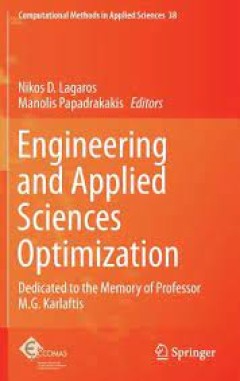
Engineering and Applied Sciences Optimization Dedicated to the Memory of Pro…
The chapters which appear in this volume are selected studies presented at the First International Conference on Engineering and Applied Sciences Optimization (OPT-i), Kos, Greece, 4-6 June 2014 and works written by friends, former colleagues and students of the late Professor M. G. Karlaftis; all in the area of optimization that he loved and published so much in himself. The subject areas repr…
- Edition
- -
- ISBN/ISSN
- 978-3-319-18320-6
- Collation
- 215 b/w illustrations
- Series Title
- -
- Call Number
- -
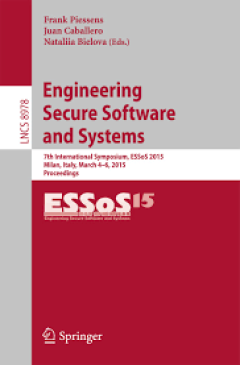
Engineering Secure Software and Systems 7th International Symposium, ESSoS 2…
This book constitutes the refereed proceedings of the 7th International Symposium on Engineering Secure Software and Systems, ESSoS 2015, held in Milan, Italy, in March 2015. The 11 full papers presented together with 5 short papers were carefully reviewed and selected from 41 submissions. The symposium features the following topics: formal methods; cloud passwords; machine learning; measuremen…
- Edition
- -
- ISBN/ISSN
- 978-3-319-15618-7
- Collation
- 63 b/w illustrations
- Series Title
- -
- Call Number
- -

Engineering Mathematics II Algebraic, Stochastic and Analysis Structures for…
This book highlights the latest advances in engineering mathematics with a main focus on the mathematical models, structures, concepts, problems and computational methods and algorithms most relevant for applications in modern technologies and engineering. It addresses mathematical methods of algebra, applied matrix analysis, operator analysis, probability theory and stochastic processes, geome…
- Edition
- -
- ISBN/ISSN
- 978-3-319-42105-6
- Collation
- 20 b/w illustrations, 26 illustrations in colour
- Series Title
- -
- Call Number
- -
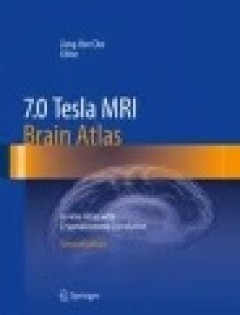
7.0 Tesla MRI Brain Atlas: In-vivo Atlas with Cryomacrotome Correlation
The inaugural publication of the 7.0 Tesla MRI Brain Atlas: In Vivo Atlas with Cryomacrotome Correlation in 2010 provided readers with a spectacular source of ultra-high resolution images revealing a wealth of details of the brainstem and midbrain structures. This second edition contributes additional knowledge gained as a result of technologic advances and recent research. To facilitate identi…
- Edition
- -
- ISBN/ISSN
- 978-3-642-54398-2
- Collation
- -
- Series Title
- -
- Call Number
- 616.0757 SEV s

Engineering Mathematics I Electromagnetics, Fluid Mechanics, Material Physic…
This book highlights the latest advances in engineering mathematics with a main focus on the mathematical models, structures, concepts, problems and computational methods and algorithms most relevant for applications in modern technologies and engineering. In particular, it features mathematical methods and models of applied analysis, probability theory, differential equations, tensor analysis …
- Edition
- -
- ISBN/ISSN
- 978-3-319-42082-0
- Collation
- 68 b/w illustrations, 67 illustrations in colour
- Series Title
- -
- Call Number
- -

Engineering Geology for Society and Territory - Volume 1 Climate Change and …
This book is one out of 8 IAEG XII Congress volumes and deals with climate change affecting different natural processes and environments, such as slope dynamics, water courses, coastal and marine environments, hydrological and littoral processes and permafrost terrain. Due to climate change, major effects are also expected on territorial planning and infrastructure, particularly in extreme clim…
- Edition
- -
- ISBN/ISSN
- 978-3-319-09300-0
- Collation
- 52 b/w illustrations, 273 illustrations in colour
- Series Title
- -
- Call Number
- -

5000 Years of Geometry: Mathematics in History and Culture
The present volume provides a fascinating overview of geometrical ideas and perceptions from the earliest cultures to the mathematical and artistic concepts of the 20th century. It is the English translation of the 3rd edition of the well-received German book “5000 Jahre Geometrie,” in which geometry is presented as a chain of developments in cultural history and their interaction with arch…
- Edition
- -
- ISBN/ISSN
- 978-3-0348-0898-9
- Collation
- -
- Series Title
- -
- Call Number
- 516 SCR f

(Re)Constructing Memory: Textbooks, Identity, Nation, and State
This book engages readers in thirteen conversations presented by authors from around the world regarding the role that textbooks play in helping readers imagine membership in the nation. Authors’ voices come from a variety of contexts – some historical, some contemporary, some providing analyses over time. But they all consider the changing portrayal of diversity, belonging and exclusion in…
- Edition
- -
- ISBN/ISSN
- 9789463005098
- Collation
- -
- Series Title
- -
- Call Number
- 301 CON c
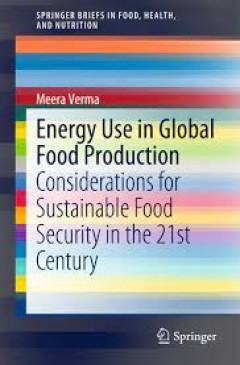
Energy Use in Global Food Production Considerations for Sustainable Food Sec…
This Brief examines the sustainability of energy use in global food production and processing. The nexus between food, water, and energy are explored against a background of climate change. Current efforts to reduce the energy intensity of food and increase sustainability are explored. Food waste and its impact on energy is covered, including regional variations and nutrient recycling method…
- Edition
- -
- ISBN/ISSN
- 978-3-319-16781-7
- Collation
- 4 illustrations in colour
- Series Title
- -
- Call Number
- -
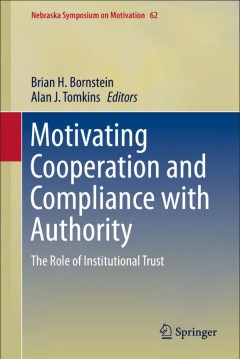
Motivating Cooperation and Compliance with Authority:The Role of Institutiona…
This volume explores the various ways in which trust is thought about and studied in contemporary society. In doing so, it aims to advance both theoretical and methodological perspectives on trust. Trust is an important topic in this series because it raises issues of both motivation and emotion. Specifically, notions of trust and fairness motivate individuals to behave in a manner they deem ap…
- Edition
- 1
- ISBN/ISSN
- 978-3-319-16150-1
- Collation
- XIII, 220
- Series Title
- Nebraska Symposium on Motivation
- Call Number
- -
 Computer Science, Information & General Works
Computer Science, Information & General Works  Philosophy & Psychology
Philosophy & Psychology  Religion
Religion  Social Sciences
Social Sciences  Language
Language  Pure Science
Pure Science  Applied Sciences
Applied Sciences  Art & Recreation
Art & Recreation  Literature
Literature  History & Geography
History & Geography